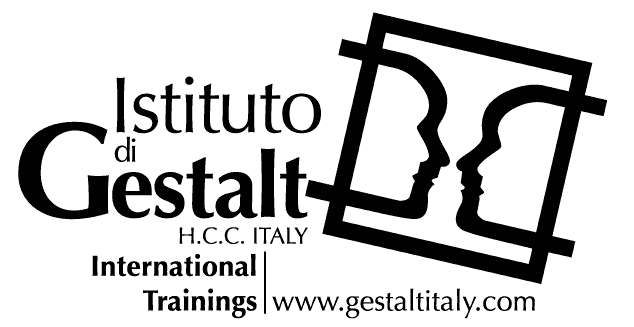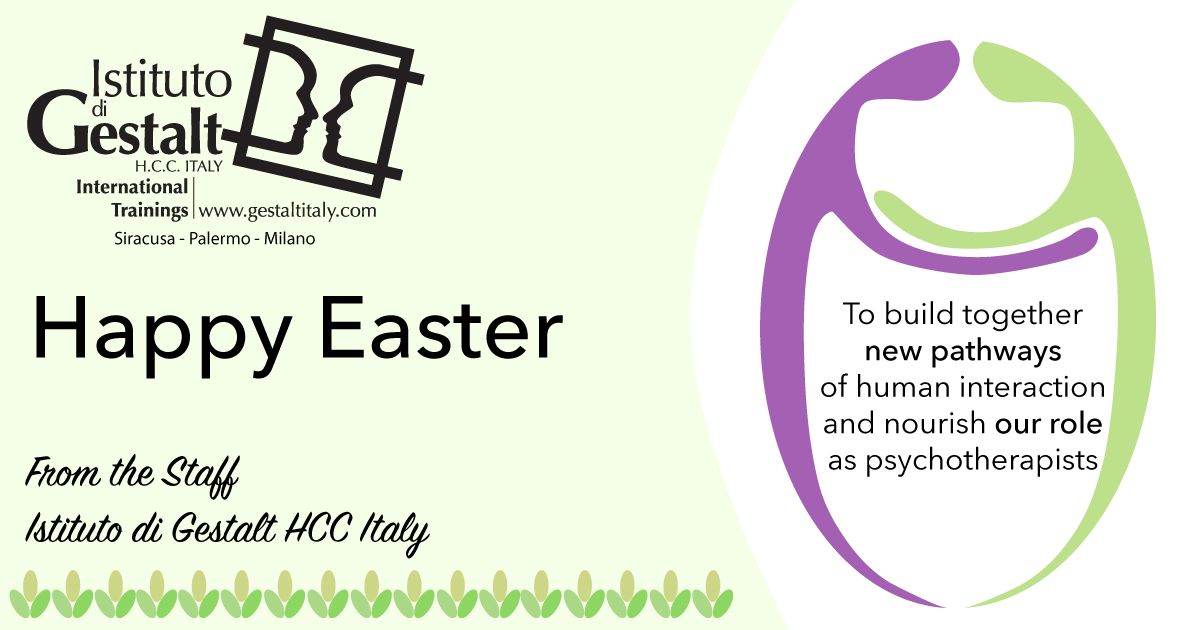Dear Friends and Colleagues,
I am pleased to write a thought to accompany you this Easter, a passage (from its etymology) this year painful and distressing but also full of new possibilities.
The background of my experience as I write to you is full of the things I have heard from colleagues at the Institute in our online meetings, from students who have never stopped meeting and studying in the virtual classes we have created for them, from colleagues working in health care, from you, dear foreign colleagues, from children.
How can we not remember, in these days of passion and resurrection, the many loved ones who are no longer there and have left us in silence, alone, without the comfort of a last farewell. I am thinking of the mourning of those who could not accompany their loved ones to death, who, when it went well, could say goodbye through a smartphone.
I am thinking of the many people who live alone – from young people trying to build a life for themselves, to widow(er)s, to separated people – forced home by quarantine, who have to work out a new loneliness.
How can we not think, with gratitude, of the many doctors, psychologists and all the health personnel, who have worked generously, to the point of exhaustion and in conditions of poor protection. They managed to withstand the shock wave of a pandemic that found everyone unprepared from an organizational and human point of view.
The voices of the children of young colleagues come back to mind, asking their mothers: “Mom, will you tell me all the dangers of the world?“.
What can we adults, raised in the denial of death, respond to these little ones so soon exposed to the serious dangers of life and pain? As these enlightened mothers say: perhaps they will be wiser than we are, because they will be able to give the right value to life, having known its absence.
In our helping function, we are called upon to support something we have never experienced. We feel anguished about the future, we feel that the virus is preventing us from being as human as we would like to be. Sometimes we find ourselves almost hoping that this quarantine will not end too soon, because we are not prepared to go outside and hug a friend without fear.
We’ll have to re-educate ourselves in touch and hug. How long will we be afraid to hug? Well, maybe sadness will be the emotion of the future, as the words of a little girl, daughter of a pupil, say in front of the prohibition to meet her friends: “They are stealing my future”.
We will have many poorer people, people who will have to be re-introduced into productive society, and who at this time have a great need to be seen by us, to be enabled to make their contribution, to deserve a dignified place in the world.
As Gestalt psychotherapists, we ask ourselves: How will this pandemic trauma remain in our bodies? What effects will the lack of contact in virtual play that children are forced to have? How will the creative adaptation of our patients who behind a screen tell us “I would like to hug you” be? How will the breath of the sufferer be transformed if it cannot be contained by the caregiver’s body?
If there’s a profession that will be crucial in the post Coronavirus, it’ll be ours. But we must adjust our tools to the new clinical needs of our clients. We must study so much to ensure that that sadness, which comes from lack of contact, gradually turns into new movements for our clients and students. That it becomes an ability to appreciate our being interconnected without having to defend ourselves against our fragility.
Perhaps it will serve less to support the autonomy of our clients and more to build with them the basic sense of security that is dismantled in traumatic experiences.
Surely we must not stop: we must study, understand how to creatively adjust the gestalt principles to the new clinical needs, and in this the flexibility and confidence in the integrative capacity of each of us, typical of Gestalt psychotherapy, will help us.
The Institute has never stopped these months. Within a few days, it has adjusted the didactics in online form. For this I thank very much all the trainers and students who have experienced this new form, with human depth, ethical sense of care and belonging.
I am really proud of them.
Mutual support circulated in a moving way among us in the Institute: the trainers made online group initiatives both to support the students and to support their colleagues, the “brothers”.
Now, in “phase 2”, we will continue to support our programs with online meetings and study subgroups.
Stay in touch at www.gestalitaly.com to know more, or write to [email protected].
We have other initiatives planned, to get out of the sense of suspension and confusion into which we have been thrown. To build together significant new paths for our human interaction and for our professional role.
With trust in everyone’s abilities to be rooted in the beauty of our organism/environment field,
I wish you good Easter days.
Margherita Spagnuolo Lobb
Istituto di Gestalt HCC Italy
Post-graduate School of Psychotherapy
Recognised by the Minister for Universities (DD.MM. 9/5/94, 7/12/01, 24/10/08, 28/4/11)
And by the EAGT – European Association for Gestalt Therapy
Milano, Palermo, Siracusa
www.gestaltitaly.com

